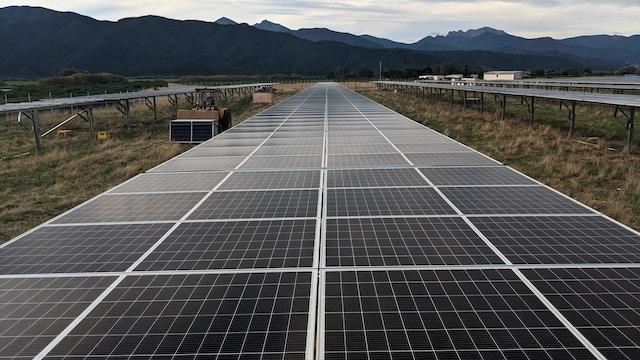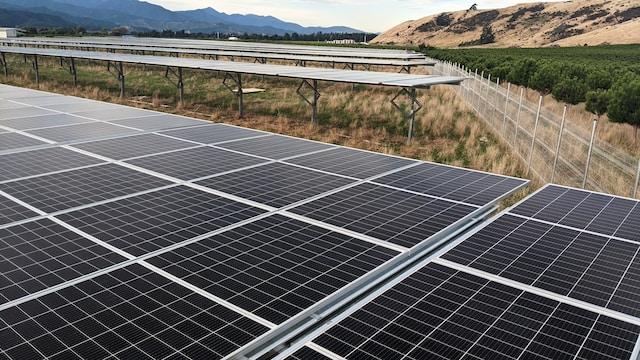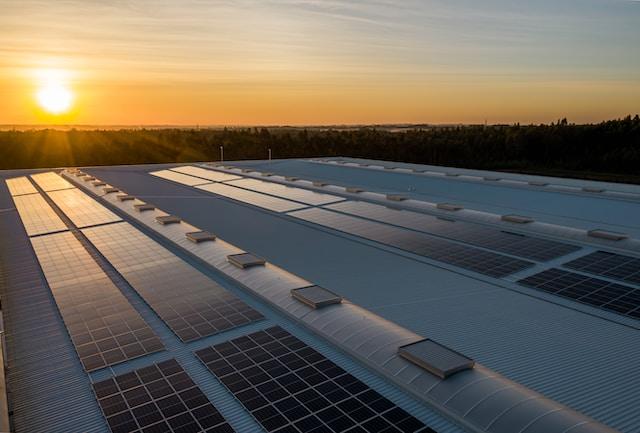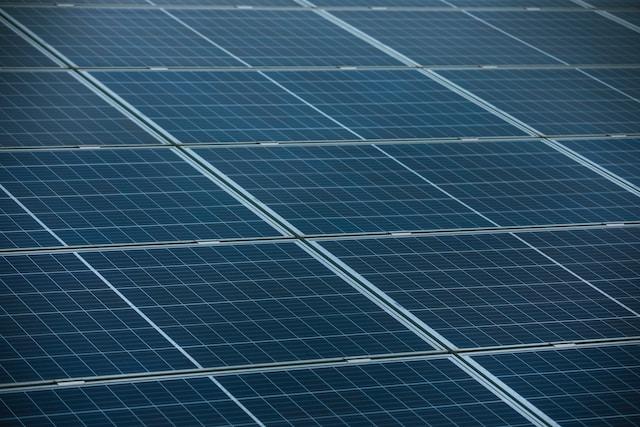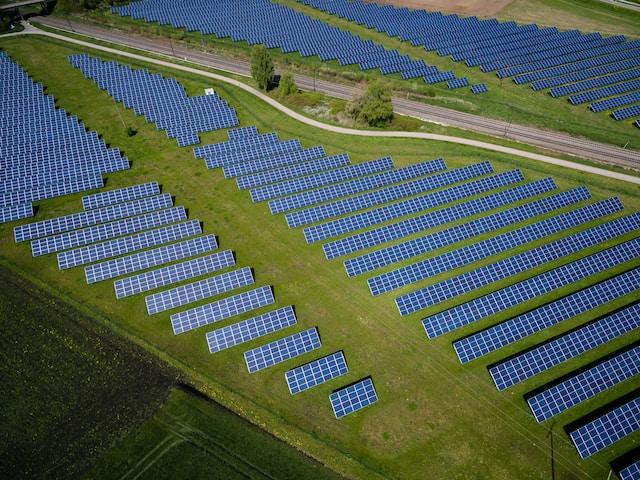
Hybrid Solar Systems: Pros, Cons & Making the Right Choice
Introduction
Hybrid solar panel systems have emerged as a cutting-edge solution in the renewable energy landscape, combining the best of solar power with other energy sources or storage systems. As the world continues to embrace clean energy alternatives, understanding the intricacies of these innovative systems becomes crucial for homeowners and businesses alike. This article aims to provide a comprehensive overview of hybrid solar panel systems, highlighting not only their numerous advantages but also addressing any potential drawbacks. By exploring the various types of hybrid systems available, as well as their benefits and challenges, readers will gain valuable insights into this rapidly evolving sector, empowering them to make informed decisions when considering a transition to sustainable, renewable energy solutions.
What is a Hybrid Solar Panel System?
A hybrid solar panel system is a renewable energy solution that combines solar power with other energy sources or storage methods, creating a more efficient, flexible, and reliable energy production system. Unlike traditional solar panel systems, which only utilize solar power, hybrid systems work in tandem with additional energy resources such as wind turbines, solar thermal collectors, or energy storage devices like batteries. This innovative approach enables users to optimize their power generation and consumption, ensuring a steady supply of clean energy even in varying weather conditions or during peak demand periods. Comparatively, traditional solar panel systems generate electricity exclusively from sunlight and may rely on the grid for support during periods of low solar production, while off-grid systems function entirely independently of the grid and require a dedicated storage solution to maintain energy supply during nonproductive periods. Hybrid solar panel systems, on the other hand, strike a balance by leveraging multiple energy sources and storage solutions to minimize reliance on the grid and maximize energy efficiency. The key components of a hybrid solar panel system include solar panels, inverters, charge controllers, batteries or other energy storage devices, and supplementary energy sources (e.g., wind turbines, solar thermal collectors). These components work together seamlessly, ensuring a stable, reliable, and sustainable energy supply that adapts to varying environmental conditions and consumption patterns.
Benefits of Hybrid Solar Panel Systems
Hybrid solar panel systems offer numerous advantages that make them an increasingly attractive option for both homeowners and businesses seeking sustainable energy solutions. One of the most significant benefits of these systems is enhanced energy efficiency. By harnessing power from multiple sources, such as solar panels and wind turbines, hybrid systems maximize energy production and reduce dependence on the grid. This increased efficiency ensures a stable and reliable energy supply, even during periods of reduced solar output or fluctuating demand. Financially, hybrid solar panel systems can lead to substantial savings on electricity bills, as the system generates more of the energy required by the property, decreasing the need for grid-supplied power. Additionally, many governments provide incentives and rebates for adopting renewable energy systems, further reducing the overall cost of investment and increasing the return on investment for property owners. Beyond the financial gains, hybrid solar panel systems also have a positive impact on the environment. By harnessing clean, renewable energy sources, these systems help minimize the carbon footprint associated with traditional energy production methods, reducing greenhouse gas emissions and combating climate change. Moreover, the increased use of sustainable energy sources like solar and wind power contributes to a global shift towards a greener, more eco-friendly future, ultimately preserving the planet for future generations.
Drawbacks of Hybrid Solar Panel Systems
Despite the numerous benefits offered by hybrid solar panel systems, it is essential to consider the potential drawbacks before investing in this renewable energy solution. One notable concern is the initial costs associated with the system components and installation. As hybrid systems combine solar power with additional energy sources or storage options, they tend to be more complex and, consequently, more expensive than traditional solar panel systems. Additionally, property owners may encounter hidden fees during installation, such as permit costs or required electrical upgrades. Maintenance and repair are other factors to take into account. While hybrid solar panel systems are generally low-maintenance, they still require regular upkeep to ensure optimal performance. This includes cleaning solar panels, inspecting wiring and connections, and monitoring system performance. Over time, certain components may need replacement or repair, adding to the long-term cost of ownership. Lastly, hybrid solar panel systems may face limited efficiency in certain conditions. Climate factors, such as excessive cloud cover, low sun exposure, or inconsistent wind patterns, can negatively impact energy production. Additionally, the efficiency of the system may be compromised by shading or improper system orientation, which can obstruct sunlight or impede wind flow. To make the most of a hybrid solar panel system, it is crucial to carefully evaluate your property's specific conditions and consult with experienced professionals during the design and installation process.
Types of Hybrid Solar Panel Systems
As renewable energy technology continues to advance, various types of hybrid solar panel systems have emerged to cater to diverse energy needs and applications. Understanding the differences between these systems is essential for making informed decisions when considering a transition to sustainable energy solutions. Solar PV and thermal hybrid systems combine photovoltaic (PV) panels, which generate electricity, with solar thermal collectors that capture heat energy. This dual approach results in a highly efficient system that can produce both electricity and hot water, reducing energy consumption for heating purposes and maximizing overall solar energy utilization. Solar and wind hybrid systems bring together solar panels and wind turbines to harness power from both sunlight and wind. This combination offers increased reliability and consistent energy production, as wind patterns and solar radiation levels often complement each other. During periods of low sunlight, wind energy can compensate for the decreased solar output, ensuring a steady flow of renewable energy. Solar and energy storage hybrid systems integrate solar panels with battery storage or other energy storage devices. This configuration allows users to store excess solar power generated during peak sunlight hours for later use, providing a reliable energy supply even when solar production is low. These systems also help reduce dependence on the grid, enabling greater energy independence and resilience in the face of power outages or grid disruptions. By assessing the unique energy requirements and environmental conditions of your property, you can identify the hybrid solar panel system that best suits your needs and contributes to a sustainable, eco-friendly future.
Choosing the Best Hybrid Solar Panel System for Your Needs
Selecting the ideal hybrid solar panel system for your home or business involves careful consideration of various factors to ensure an optimal balance between energy efficiency, cost-effectiveness, and environmental impact. Begin by evaluating your energy requirements, including daily consumption patterns, peak usage times, and any specific energy-intensive appliances or equipment. A detailed understanding of your energy needs will help you choose a system that can effectively cater to your demand while maximizing renewable energy production. Your geographical location and climate also play a crucial role in determining the most suitable hybrid solar panel system. Consider factors such as average sunlight hours, seasonal weather patterns, and the availability of other renewable resources like wind. Optimal system performance depends on harnessing the energy potential of your specific region, so accounting for these variables is essential in the decision-making process. Lastly, analyze your budget and the potential return on investment when selecting a hybrid solar panel system. Initial costs, ongoing maintenance, and potential government incentives or rebates should all factor into your financial calculations. While the upfront investment in a hybrid system may be higher than that of a traditional solar panel system, the long-term savings and increased energy efficiency can make it a more cost-effective choice in the long run. By carefully weighing these factors, you can choose a hybrid solar panel system that not only meets your energy needs but also contributes to a more sustainable and eco-friendly future.
Installation of Hybrid Solar Panel Systems
The installation process for hybrid solar panel systems is a critical phase that can significantly impact the performance and lifespan of your renewable energy solution. Ensuring a smooth and successful installation begins with finding a reputable solar installer. Look for experienced professionals with a proven track record, proper certification, and positive customer reviews. Obtaining multiple quotes and comparing services can help you make an informed decision and select an installer that best suits your needs and budget. Before the installation, it's essential to prepare your home or business by addressing any potential issues that could hinder the process or affect system performance. This may include trimming overgrown trees or bushes that could obstruct sunlight or wind flow, evaluating the structural integrity of your roof, or making any necessary electrical upgrades. A thorough site assessment by your chosen installer will help identify any modifications required for a successful installation. Lastly, familiarize yourself with the installation process and timeline. A typical hybrid solar panel system installation can take anywhere from a few days to a couple of weeks, depending on factors like system complexity and weather conditions. Clear communication with your installer is vital to set realistic expectations and ensure a hassle-free experience. By understanding the installation process and taking the necessary steps to prepare your property, you'll be well on your way to harnessing the power of renewable energy with your new hybrid solar panel system.
Maintenance and Optimization of Your Hybrid Solar Panel System
Proper maintenance and optimization are essential to ensuring the longevity and peak performance of your hybrid solar panel system. Regular upkeep will help you get the most out of your investment while minimizing the risk of system downtime or potential failures. Key maintenance tasks include cleaning solar panels to remove dirt, dust, or debris that could hinder sunlight absorption, inspecting system components such as wiring and connections for signs of wear or damage, and checking for proper system ventilation. For wind components, it is crucial to routinely inspect turbine blades and perform lubrication as needed. While most of these tasks can be carried out by the property owner, it is beneficial to schedule periodic professional check-ups to identify and address any potential issues early on. Monitoring system performance is another crucial aspect of maintaining your hybrid solar panel system. Regularly reviewing energy production data and consumption patterns will help you identify areas for improvement or detect irregularities that may indicate an issue. Many systems now come with remote monitoring capabilities, making it easier than ever to track your system's performance and make data-driven decisions. As your energy needs evolve or new technologies emerge, consider upgrading or expanding your hybrid solar panel system. Additional solar panels, wind turbines, or energy storage devices can be integrated to further enhance energy efficiency and meet growing demands. Staying informed about advancements in renewable energy technology and consulting with your installer will help you make the most of your system and continue reaping the benefits of sustainable energy for years to come.
Conclusion
In summary, hybrid solar panel systems offer numerous benefits, such as enhanced energy efficiency, financial advantages, and positive environmental impact. However, potential drawbacks, including initial costs, maintenance, and limited efficiency in certain conditions, must also be considered. It is crucial for readers to weigh the pros and cons of hybrid systems carefully, taking into account their specific energy requirements, geographical location, and budget constraints. By making an informed decision, homeowners and businesses can embrace the renewable energy revolution and contribute to a more sustainable, eco-friendly future.
Apr 5, 2023
Share:
Fresh off the Press
Continue reading
Newsletter
Your journey towards a sustainable lifestyle starts here!
Join our newsletter for the latest on solar panels and clean energy breakthroughs.

